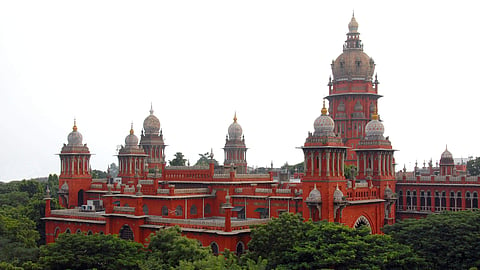

MADURAI: In a ruling on complying with the principles of natural justice (ensuring that no individual is condemned unheard, or fair hearing, or listen to the other side), the Madurai Bench of the Madras High Court has set aside a divorce order passed by a family court to a couple on the grounds of adultery, as the ‘adulterer’ was not impleaded in the case.
A division bench of Justices GR Swaminathan and R Poornima was hearing an appeal filed by the woman against the divorce order.
The bench said in divorce petitions on adultery grounds, if the petitioner is aware of the details of the alleged adulterer, then he or she must be made a co-respondent. Failure to implead the person in the petition would be fatal. If according to the petitioner, the name of the adulterer or adulteress is not known or if the alleged adulterer or adulteress is dead, the petitioner can be excused from the requirement of impleading the alleged adulterer.
“Sometimes judges have taken the view that it will amount to invading the privacy of alleged adulterer, however, we do not think so,” the bench said.
The HC bench further said accepting the case of the spouse suing for divorce on the ground of adultery would result in casting stigma and aspersions on the character of the person with whom the other partner is said to have had an adulterous relationship. Opportunity ought to be given to the said individual to disprove the allegations. Otherwise, the person would stand condemned behind his back. It is only just and fair that a person is heard before he is condemned. Certainly in the culture to be branded an adulterer is not a badge of honour, the bench added.
“Yet another reason for taking the above view is that it would discourage one from making reckless allegations. If making the alleged adulterer as co-respondent is made mandatory, one would think twice before putting forth baseless allegations,” the bench said.
The division bench said the marriage between the appellant and the respondent was held in November 1999 and they have two children. The husband filed a petition in the family court in Sivaganga for dissolving the marriage and his wife filed a petition against it. Later the family court dissolved the marriage. However, in the case the alleged adulterer was not made a party. The allegations were also vague from the husband’s end, the bench said, stating that the divorce petition was fundamentally defective.
In the present case, the husband was aware of the adulterer’s details.